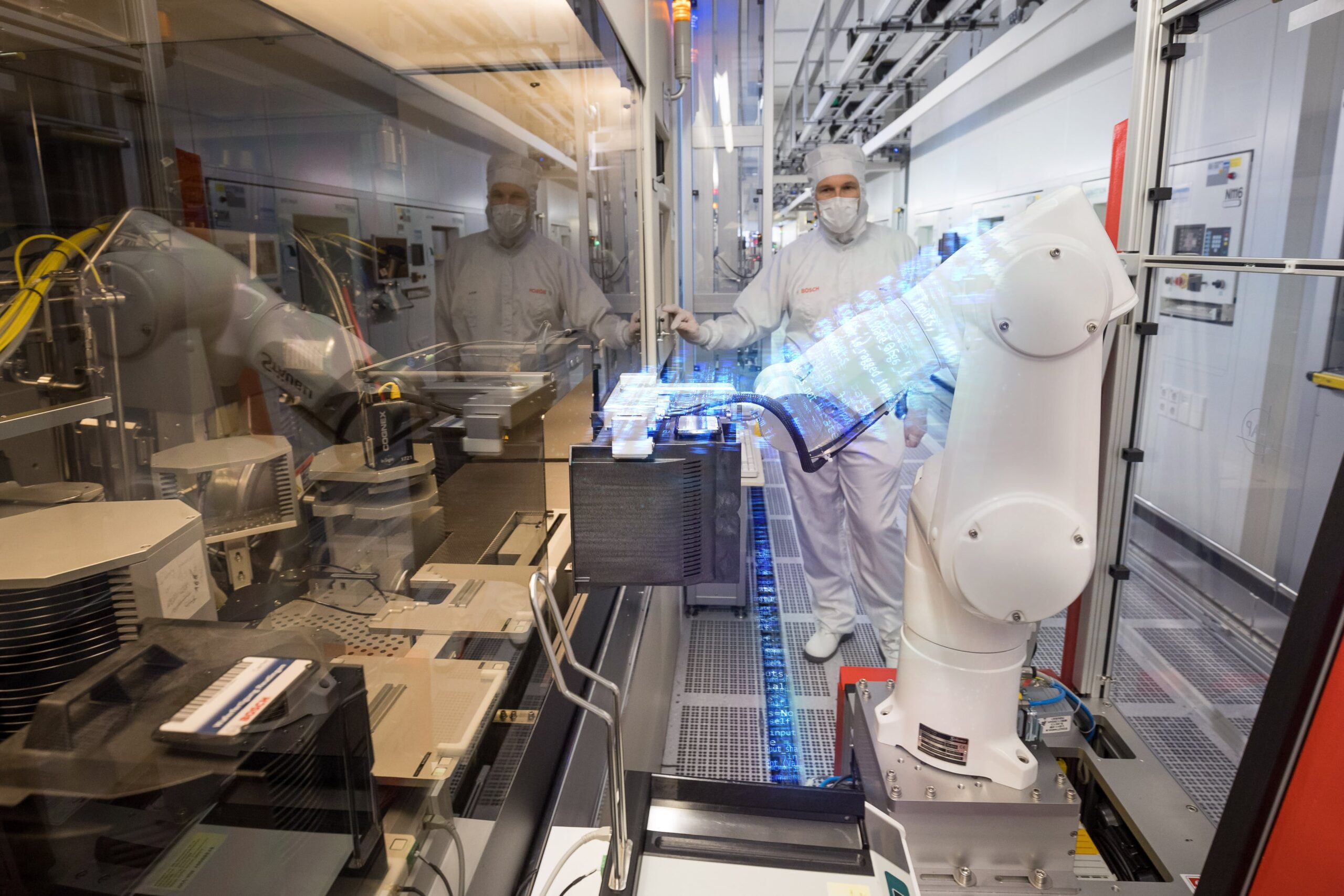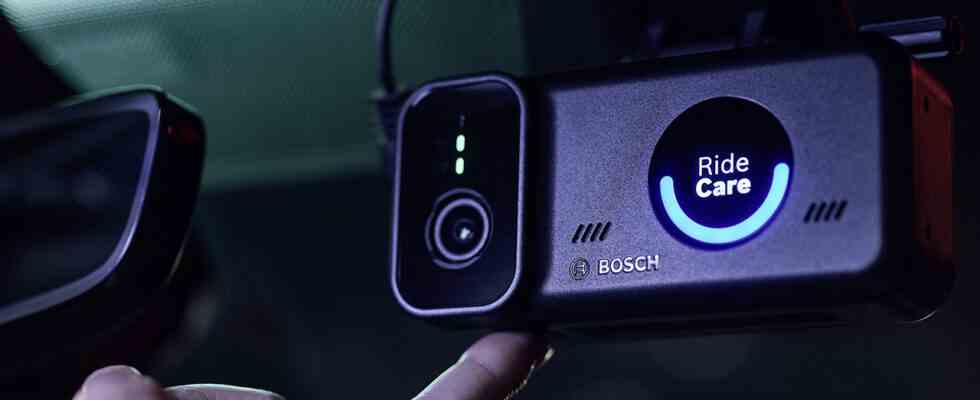Today, sensors are everywhere; They enable cars, electric bikes, smartphones, fitness trackers, and headphones to sense their surroundings. In this context, Bosch, one of the largest sensor manufacturers, develops smart sensors that make life safer and more comfortable.
Tanja Rückert, Board Member of Bosch, who is the pioneer and market leader in micro electro-mechanical (MEMS) sensors, one of the most important and widely used sensor types today, said at CES 2023 held in Las Vegas.We started the production of MEMS sensors in 1995. In the last five years, we have produced the same numbers as the previous years.” said.
It has produced more than 18 billion MEMS sensors in total over 27 years. Today, every car has an average of 22 sensors. According to the Yole Group, a market research and strategy consulting firm, Bosch is currently the largest manufacturer of MEMS sensors. Global annual demand for these sensors, currently 33.5 billion, is expected to increase to approximately 49 billion by 2027.
Bosch also wants to get a share from this growth and expects an even more significant increase in production figures in the coming years. Rückert emphasized that the company wants to remain the market leader and further expand its leading position.
To meet the growing demand, Bosch is investing heavily in chip factories in Dresden and Reutlingen. Overall, the company plans to invest €3 billion by 2026 in the semiconductor business and thus in sensor development and production as part of its investment plan.
In its microelectronics and communications technology business, the company will benefit from the European IPCEI ME (Microelectronics Program of Major Common European Interests Project) funding programme.
Sensors save lives and pave the way for connectivity
Sensors are the heart of modern technology and the backbone of the connected world. They make cars safer, save lives every day, and help protect both the environment and human health.
This makes them a crucial technological foundation for all Bosch business areas, as well as the focus of the digital image campaign under the slogan ‘Sensor technology #LikeABosch’.
“With the help of sensors, we can take ‘Technology for life’ to a new level. Not only do they improve people’s quality of life, they also reduce the environmental footprint of our smart daily utility apps. “Our new #LikeABosch campaign provides some striking examples of what that means.”
As MEMS sensors first became widely used in the automotive industry, Bosch became one of the industry’s leading sensor manufacturers. Bosch sensors assist in vehicle navigation, control of airbags and ESP systems, and provide a wide range of auxiliary functions that increase driving safety, comfort, convenience and efficiency.
Especially for autonomous driving, sensors are indispensable. It is possible to define these as the ‘eyes’ through which cars can see and understand their surroundings. Bosch sensors pave the way for self-driving cars. The company already offers a range of radar, lidar, video and ultrasonic sensors for autonomous driving.
MEMS sensors also play a key role in consumer electronics. For example, pressure sensors in smartphones can determine the height of a device up to a few centimeters. This allows first responders in the event of an emergency to very quickly find out which floor a person in distress is on. The US Federal Communications Commission (FCC) estimates that such pressure sensors save 10,000 lives a year in the US alone.
New Bosch innovations increase safety on the road
At CES 2023, Bosch will introduce several new sensor-based innovations in the field of mobility, including the RideCare utility solution, which received the ‘Best Innovation Award’ from industry association CTA. The company states that the RideCare companion app will play a critical role in connected and autonomous mobility, in the safety of all occupants in the car.

Networked hardware and software solution consisting of smart camera, wireless SOS button and cloud-based data services enables monitoring inside and outside of the car. Occupants can use this solution to communicate with Bosch employees around the clock when an accident or other dangerous situation occurs.
In the event of an incident, a Bosch employee can view the vehicle via video, assess the situation and quickly request assistance if necessary. The RideCare companion app acts as a valuable safety net, especially for taxi or shared car drivers.
Out-of-zone collision detection also promises greater safety on the road. The system protects the occupants in side collisions, which often occur when changing lanes or crossing intersections. Intelligent sensors combined with a new software algorithm quickly and reliably detect the exact angle of impact in the event of a side collision and trigger the life-saving airbag in time to mitigate the consequences of an accident.
At CES in Las Vegas, Bosch North America President Mike Mansuetti said, “Our out-of-zone collision detection is a great example of how we’re using software to get more out of existing hardware. “This provides a significant additional benefit in road transport.”
Quantum sensors offer huge potential
Bosch also continues its pioneering role in the development of new sensor fields such as quantum sensors. It is stated that quantum sensors, which will be one of the important innovation areas in the coming years, can provide 1,000 times more sensitive measurements than today’s MEMS sensors. For example, in this way, neurological diseases can be diagnosed more easily and more accurately.
Bosch established its own initiative last year to enable the commercialization of quantum sensors and develop this market. As a diverse technology company, Bosch advances the development of promising technologies in many areas and positions itself for the future. “Over the next three years, we will invest another 10 billion Euros in digital transformation. Our current workforce of 40,000 software engineers will also grow.”
Sustainability drives technological progress
The Bosch Group also prioritizes climate action and sustainability. “For the future of our planet, it is crucial that we all commit ourselves to living increasingly energy-efficient lives. “At the same time, climate change is driving technological progress at our company, including sensors.”
At CES, Bosch is showcasing a new generation of MEMS sensors that are more accurate, more robust and more power efficient than previous models. For example, the programmable AI-enabled BHI360/BHI380 inertia sensor, which is attached to fitness trackers and adapts to the individual movements of the user, is half the size of the previous model and consumes half less power.
The same is true for the new BMV080 particle sensor, which measures particulate matter concentration and pollution in the air and is 450 times smaller than products currently on the market with its space-saving design. Another example is the BMP585 barometric pressure sensor, which measures a few centimeters of height change and can thus detect individual pull-ups or push-ups. This sensor also requires 85 percent less energy than the previous generation, while increasing its robustness by three times.
